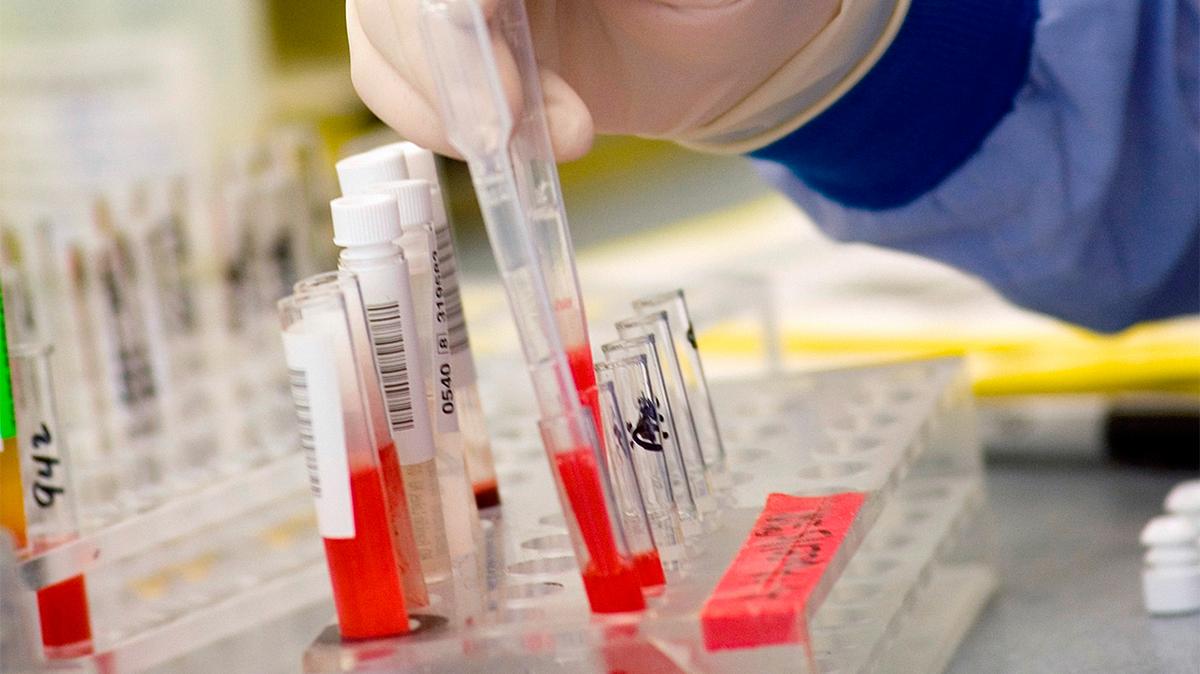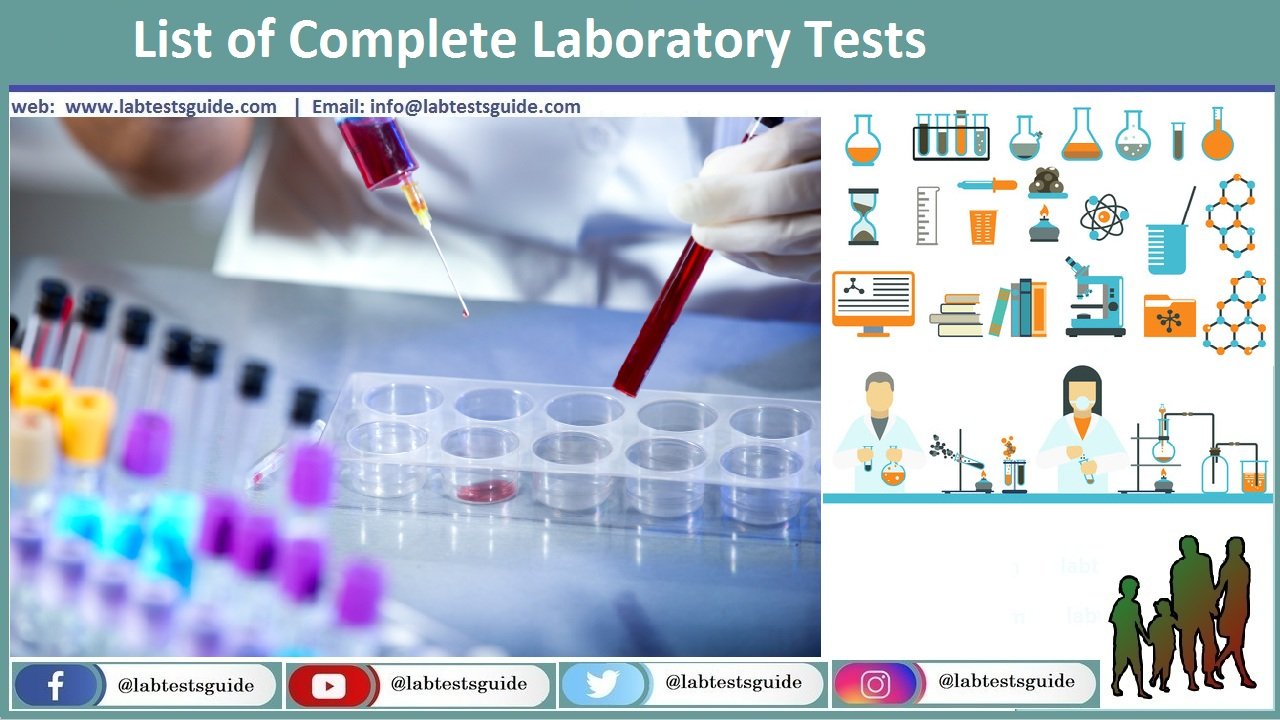Quest diagnostics all other tests – Quest Diagnostics: All Other Tests—a phrase that might sound clinical, even intimidating, actually unveils a world of specialized medical investigations beyond the routine. This isn’t just about standard blood work; we’re delving into the intricate realm of diagnostic tests that provide crucial insights into your health, often uncovering conditions that standard panels might miss. Prepare to uncover the power of these specialized tests and how they can contribute to a more comprehensive understanding of your well-being.
This exploration will cover everything from understanding the diverse range of tests offered under this category to navigating the ordering process, costs, and insurance coverage. We’ll clarify sample preparation, examine result interpretation, and address common questions you might have. By the end, you’ll be empowered with the knowledge to confidently discuss these tests with your healthcare provider.
Quest Diagnostics: Unveiling the Comprehensive “All Other Tests” Catalog: Quest Diagnostics All Other Tests
Beyond the routine blood panels and common diagnostic tests, Quest Diagnostics offers a vast array of specialized procedures under the umbrella of “All Other Tests.” This category encompasses a wide spectrum of diagnostic tools, catering to a diverse range of medical needs and investigations. This detailed exploration will provide a comprehensive overview of these tests, covering their purpose, ordering process, cost considerations, and result interpretation.
Quest Diagnostics Test Catalog Overview, Quest diagnostics all other tests
The “All Other Tests” category at Quest Diagnostics is a treasure trove of specialized diagnostic tools. Understanding the breadth of this category is crucial for both healthcare providers and patients. The following table provides a categorized overview.
| Category | Subcategory | Brief Description | Typical Uses |
|---|---|---|---|
| Genetics | Carrier Screening | Identifies individuals carrying genes for recessive disorders. | Preconception planning, family history of genetic disorders. |
| Infectious Disease | Specialized Viral Panels | Detects a range of viruses beyond common panels. | Diagnosing atypical infections, monitoring treatment response. |
| Endocrinology | Hormone Panels (Advanced) | Measures a wider range of hormones than routine panels. | Investigating hormonal imbalances, infertility workup. |
| Immunology | Autoantibody Testing | Detects antibodies associated with autoimmune diseases. | Diagnosing autoimmune conditions like lupus or rheumatoid arthritis. |
| Toxicology | Drug Screens (Expanded) | Identifies a broader spectrum of drugs and substances. | Workplace drug testing, forensic investigations. |
Ten specific examples of tests within “All Other Tests” include:
- Genetic Testing for Cystic Fibrosis: Identifies the presence of mutations in the CFTR gene.
- Herpes Simplex Virus (HSV) PCR: Detects HSV DNA to diagnose infection.
- Thyroid Antibody Panel: Measures antibodies associated with thyroid disorders.
- Antinuclear Antibody (ANA) Test: Detects antibodies associated with autoimmune diseases.
- Comprehensive Metabolic Panel (CMP) with additional markers: Includes electrolytes, glucose, liver function, and kidney function tests, often with added markers for more specific evaluation.
- Urine Toxicology Screen (Expanded): Screens for a wider range of drugs than standard panels.
- HLA Typing: Determines human leukocyte antigen types for organ transplantation compatibility.
- Coagulation Studies (Specialized): Evaluates specific clotting factors.
- Cancer Marker Testing (Advanced): Measures specific tumor markers beyond routine panels.
- Food Allergy Testing (Specific IgE): Measures IgE antibodies against specific food allergens.
Routine blood tests typically focus on common parameters, providing a general overview of health. “All Other Tests,” conversely, delve into specific areas, offering targeted diagnostics for complex conditions or specialized investigations. They are often ordered when routine tests are inconclusive or when a specific condition is suspected.
Specialized Testing Process and Turnaround Times
Ordering a test from the “All Other Tests” category involves a collaborative process between the patient and their physician. The physician will determine the appropriate test based on the patient’s medical history and symptoms.
- Physician’s Order: The physician orders the test through Quest Diagnostics’ online portal or by phone.
- Patient Scheduling: The patient schedules an appointment at a Quest Diagnostics location or uses at-home collection services.
- Sample Collection: The appropriate sample (blood, urine, tissue, etc.) is collected.
- Laboratory Analysis: Quest Diagnostics’ laboratories perform the analysis.
- Result Reporting: Results are transmitted electronically to the physician, who then discusses them with the patient.
A simplified flowchart would visually depict these steps, with boxes representing each stage and arrows indicating the flow of the process. The specific turnaround time varies greatly depending on the complexity of the test. Routine tests might have results within a few days, while more complex genetic tests can take several weeks.
Cost and Insurance Coverage for Specialized Tests
The cost of “All Other Tests” varies significantly depending on the specific test ordered. Insurance coverage also differs based on the patient’s plan and the medical necessity of the test.
Finish your research with information from utv for sale athens ga.
- Genetic Testing: $500 – $3000+
- Specialized Infectious Disease Panels: $200 – $800
- Advanced Hormone Panels: $150 – $500
- Autoantibody Testing: $100 – $300
- Expanded Toxicology Screens: $150 – $400
Most insurance plans cover medically necessary “All Other Tests,” but patients should check their coverage details. Out-of-pocket costs may include co-pays, deductibles, and co-insurance. Quest Diagnostics offers financial assistance programs for patients struggling with high costs, reducing the financial burden of essential diagnostics.
Test Preparation and Procedures for Selected Tests

Preparation varies greatly depending on the test. Some tests require fasting, while others may need specific dietary restrictions. Accurate sample collection is critical for reliable results.
Here are preparation guidelines for five diverse tests:
- Fasting Blood Glucose: Requires an 8-12 hour fast before the test.
- Lipid Panel: Requires a 9-12 hour fast.
- Urine Culture: Collect a mid-stream urine sample in a sterile container.
- Genetic Testing (saliva sample): Follow provided instructions carefully for saliva collection.
- Stool Sample for occult blood testing: Avoid red meat for several days before the test.
Sample collection methods vary widely depending on the test type.
| Test Name | Sample Type | Collection Method | Special Considerations |
|---|---|---|---|
| Blood Glucose | Blood | Fingerstick or venipuncture | Fasting required |
| Urine Culture | Urine | Mid-stream clean catch | Cleanliness is crucial |
| Genetic Testing (DNA) | Blood or Saliva | Venipuncture or saliva collection kit | Follow kit instructions carefully |
| Stool Sample | Stool | Collection in special container | Avoid contamination |
Proper sample handling is essential. Incorrect storage or transport can compromise test accuracy, leading to unreliable results and potentially impacting medical decisions. Adhering to Quest Diagnostics’ guidelines ensures optimal results.
Interpreting Results and Clinical Significance

Several factors can influence the accuracy of “All Other Tests,” including improper sample handling, medication interference, and underlying medical conditions. Accurate interpretation requires a thorough understanding of the test’s limitations and the patient’s clinical context.
Examples of how results are used in conjunction with other diagnostic information:
- Elevated liver enzymes (CMP) combined with positive Hepatitis B antibodies suggest Hepatitis B infection.
- Positive ANA test and clinical symptoms point towards a possible autoimmune disorder requiring further investigation.
- Abnormal genetic test results coupled with family history can guide genetic counseling and preventative measures.
Consulting a healthcare professional for result interpretation is crucial. Physicians integrate test results with other clinical information to arrive at a comprehensive diagnosis and treatment plan. Self-interpretation can lead to misdiagnosis and potentially harmful consequences.
Unlocking the secrets held within “all other tests” at Quest Diagnostics is key to a more complete picture of your health. From understanding the nuanced procedures to navigating the financial aspects, this comprehensive guide empowers you to make informed decisions in partnership with your healthcare professional. Remember, these specialized tests are often crucial for early diagnosis and effective treatment, highlighting the vital role they play in proactive healthcare management.
Don’t hesitate to discuss your concerns and utilize the information presented here to initiate a more proactive approach to your health journey.



